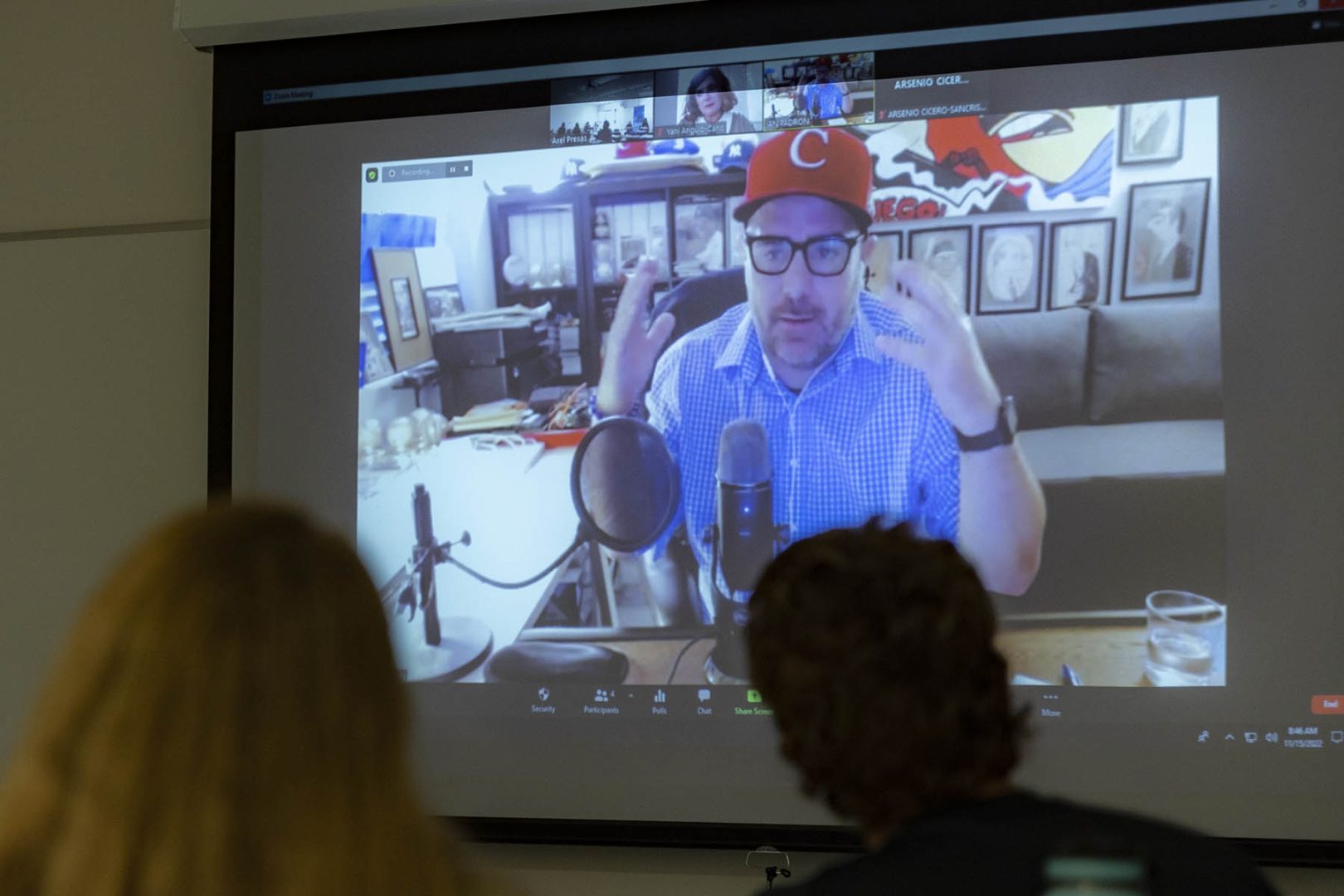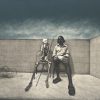Cuban filmmaker Ian Padrón, director of Habanastation, joined Eckerd College Assistant Professor of Spanish Axel Presas’s advanced Cuban Literature class on Nov. 15 to talk about his 2011 feature film via Zoom.
Presas said he screened the film about two children from different social classes because Cuban literature is culture-focused and is therefore very cinematic—film and literature complement each other well in Cuban culture. Presas’s goal for this Zoom session was to create a space for his students to connect with a creator of Cuban work and amplify how Padrón experiences Cuban culture.
After Presas introduced Padrón to the class, the floor was opened for conversation. Students asked questions about the inspiration behind and process of making this film. They also talked about the challenges Padrón faced, specifically regarding censorship laws in Cuba, where film production is controlled by the government.
“This conversation was valuable because Padrón talked about how the film has impacted people in the neighborhood,” says Lily-Havana de Laforcade, a senior marine science and Spanish student from Virginia Beach, Virginia. “It brings an aspect of humanity to people’s perspective of Cuba.”
Lily says she enjoyed hearing about these stories because they reveal the nuances of Cuban culture and added yet another layer to her understanding of the country.
In showing this film and inviting Padrón into the classroom, Presas says he wanted to expand students’ views of our neighbor to the south.
Often, thoughts of Cuba evoke political images and revolve around the political environment. But as Presas and Padrón pointed out, the communist country is so much more than that. Their roles as creators allow them to reveal a different side of Cuba.
“My country is not free,” Padrón said during the session. “Cuba is a beautiful country, but it is difficult to explain and difficult to understand.” His role as a creator, especially a director, allows for creative expression in unexpected ways. Although the government controls film production, there is less censorship of movies than there is of other media.
Jonah Rondash, a senior marine science and Spanish student from Boulder, Colorado, was particularly interested in Padrón’s creative process when making the film. “In a place where everything is so limited,” he says, “it was interesting to learn about his experience and the challenges he faced.”
Padrón had to wait 10 long years to create this film. He pitched the story, which was inspired by his personal experience, to the Instituto de Cine but was not allowed to begin filming until a decade later. Once production was underway, the locals were incredibly supportive of the film, and it continues to impact people from all walks of life.
“I’m very proud of my students,” Presas says. “They created a very good rapport and relationship with Ian when he was with us.”













